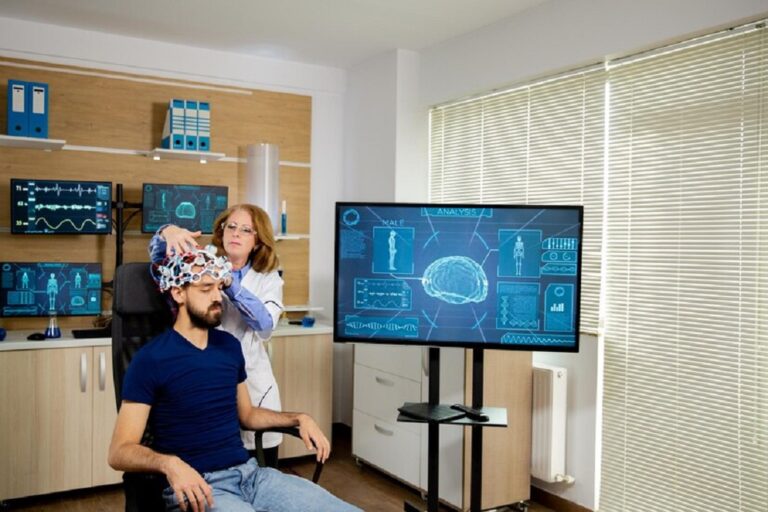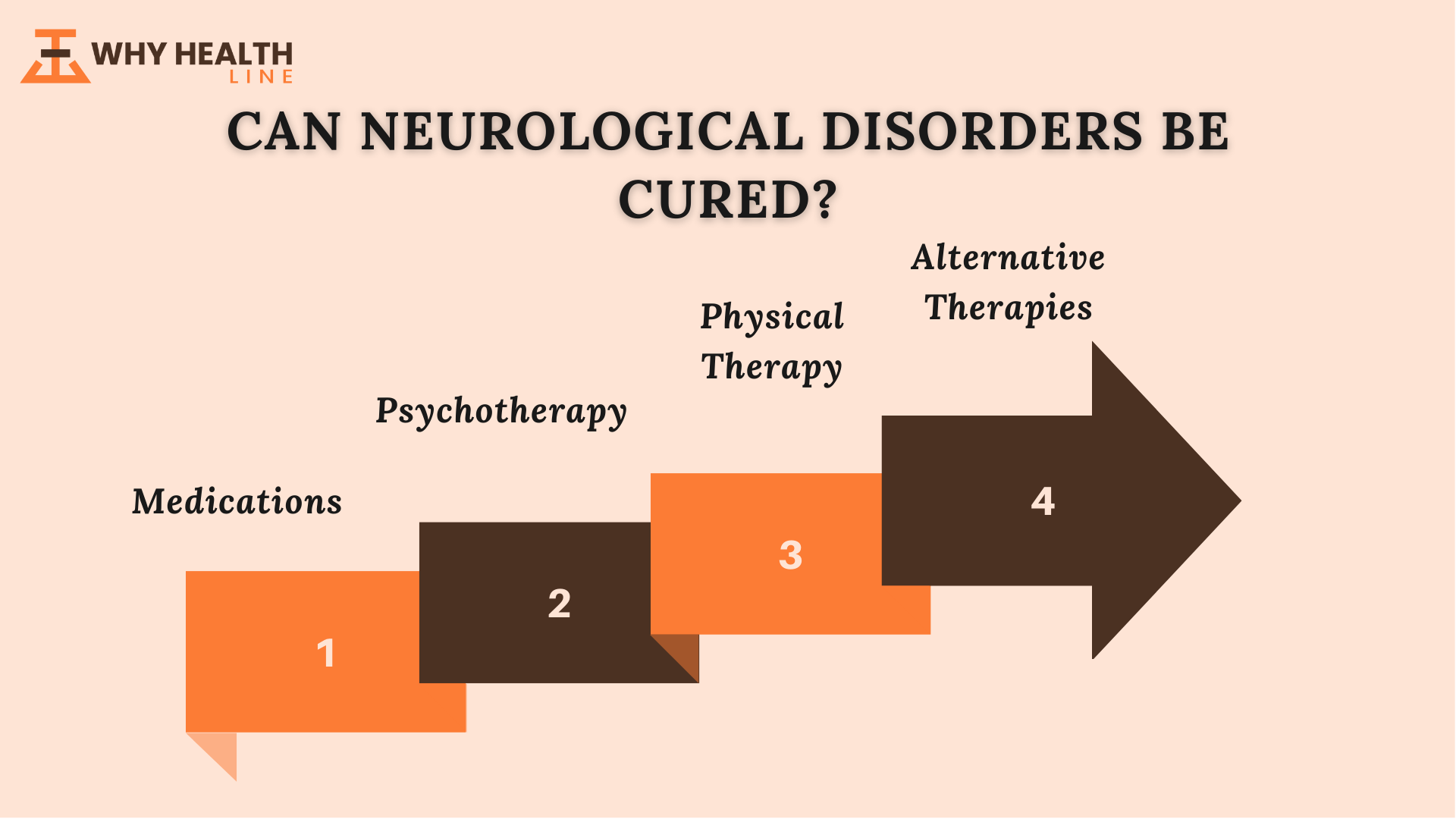
Functional Neurological Disorder (FND) is a condition that significantly impacts the brain’s functioning. It is thought to be a disorder at the intersection of psychosis and neurology and is called a neuropsychiatric disorder.
In Functional Neurological Disorder (FND), the pathways our brain utilizes typically for movement, feeling, communicating, walking, and thinking are affected.
This causes symptoms like paralysis (inability to move parts of your body) or episodes that look like seizures, abnormal actions like tremors or sudden jerks, and issues with memory, etc.
Symptoms of Functional Neurological Disorder
Functional Neurological Disorder (FND) sufferers may experience various symptoms that are either sensory, physical, or cognitive.
However, the most frequent symptoms include:
- Functional limb weakness/paralysis.
- Functional disorders of movement, including spasms, tremors (dystonia) and fast and jerky motions (myoclonus), and issues walking (gait disorders).
- Slurred speech that stutters.
The Episodes of Altered Consciousness
The symptoms of Functional Neurological Disorder (FND) are often unpredictable and can fluctuate daily or be present throughout the day. Patients with this disorder might also experience significant remission and then experience sudden relapses of symptoms.
Other psychological and physical symptoms include chronic pains, fatigue, sleep disorders, issues in the bladder and bowel, depression, and anxiety.
Diagnosis
There is no single test that can diagnose FND. However, doctors usually examine the patient’s family and medical background to rule out any related condition or disorder that could cause symptoms. Functional Neurological Disorder (FND) can also coexist with other illnesses.
Tests for Functional Neurological Disorder (FND) may include neurologic, physical, and psychiatric examinations, along with imaging scans, which diagnose symptoms like tremors or weakness, walking, and vision.
Other tests, such as electromyography and electroencephalography can also help identify a movement disorder.
Can Neurological Disorders Be Cured?
There are not any specific treatments for FND; however, a group of healthcare professionals and doctors of various specialties can collaborate to offer a variety of treatments and holistic treatment.
The medical team you work with will set up an appointment for follow-up visits. Families should also be involved to get to know FND, support you, and help you deal with your symptoms, treatment, and any stigma that comes with the disorder.
-
Medications
While there is no medication specifically designed to treat FND, there are certain medicines available to treat anxiety, pain, depression, insomnia, or headaches.
However, anti-seizure medicines that are used to treat seizures without epilepsy should be prevented, as the seizures of PNES and epilepsy are not the same and are treated in different ways.
-
Psychotherapy
Cognitive behavioral therapy is a type of psychotherapy that can help patients change their thoughts, feelings, or behavior. Psychodynamic is another therapy used to recognize and eliminate patterns that patients usually observe in their thoughts, beliefs, and emotions.
Meditation and relaxation exercises can help ease stress as well. Certain people also use hypnosis to achieve relaxation and decrease Functional Neurological Disorder (FND) symptoms.
-
Physical Therapy
This involves working with a physical therapist to help improve physical functioning and reduce physical symptoms. Physical therapy may include exercises, stretches, and other techniques to improve mobility and reduce pain.
-
Alternative Therapies
Some patients may find relief from their symptoms with alternative therapies such as acupuncture, yoga, or meditation. These therapies may help to reduce stress and promote relaxation, which can help to reduce symptoms of FND.

Conclusion:
In conclusion, Functional Neurological Disorder (FND) is a complex and often misunderstood condition that affects the functioning of the nervous system. It is a condition that arises from a combination of biological, psychological, and social factors.
Therefore, it is essential to understand that FND is not a conscious or voluntary decision to manifest symptoms, but rather a manifestation of unconscious psychological distress.
A multidisciplinary approach involving a team of healthcare providers can develop an individualized treatment plan that is tailored to the patient’s needs in order to treat this disorder.
FAQs
What Is the Most Common Neurological Disorder?
According to the World Health Organization (WHO), the most common neurological disorder is migraine. Migraine is a type of headache disorder characterized by recurring headaches that are typically accompanied by other symptoms such as nausea and sensitivity to light and sound.
Migraine affects approximately 15% of the global population, with women being affected more than men. Other common neurological disorders include Alzheimer’s disease, epilepsy, Parkinson’s disease, multiple sclerosis, and stroke.
Is Neurological Disorder Serious?
Neurological disorders can range from mild to severe, and their seriousness depends on various factors such as the type of disorder, its cause, and the age and overall health of the affected person.
Some neurological disorders, such as migraines or carpal tunnel syndrome, may not be life-threatening but can still significantly affect a person’s quality of life.
On the other hand, more severe neurological disorders such as Alzheimer’s disease, Parkinson’s disease, or multiple sclerosis can be debilitating and life-threatening.
It is important to note that many neurological disorders can be managed with proper medical care and lifestyle changes, but some may require ongoing treatment or even be irreversible.
Therefore, it is always recommended to seek medical advice if you suspect you or someone you know may be suffering from a neurological disorder.